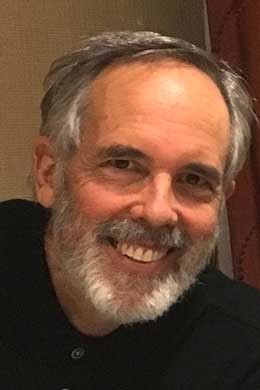By RICK LONGINOTTI
In U.S. cities just prior to the automobile revolution, there was plenty of social inequality, but a lot more equality of mobility than we have now. People of all classes walked or rode a streetcar. The ascendancy of the automobile and the demise of public transportation produced urban sprawl. Destinations that people use to be able to reach by streetcar or walking are now spread out across great distances, making owning a car a virtual necessity. Households pay a big portion of their income (on average) to get where they need to go. In car-dependent locations like Sacramento and Riverside County, the average portion of household income spent on transportation is 28 percent.
Our county’s shortage of affordable housing near job centers imposes a no-win dilemma on many households: Live close to work in housing that stresses your finances, or drive until you can afford housing. If you choose the latter, count on spending a great portion of your day on clogged highways.
Many county political leaders have ducked the hard facts about congestion on Highway 1. There’s literally no way to build our way out of congestion. Even if there were money for the Regional Transportation Commission’s (RTC) plan to widen Highway 1 to three lanes in each direction (one of them a carpool lane in peak hours), any congestion relief would be of short duration.
UC Davis researcher Susan Handy reports that “studies consistently show that adding capacity to roadways fails to alleviate congestion for long because it actually increases vehicle miles traveled.” That’s because there is a pent-up demand for travel. The moment the commute along Highway 1 appears less onerous, plenty of Silicon Valley workers will be willing to find housing in Santa Cruz County. And highway congestion will return.
Spreading the belief that widening Highway 1 will relieve congestion for Pajaro Valley commuters heading to North County is a disservice to every commuter stuck in traffic. There is no state or federal money to widen Highway 1. The only funds available are from the local sales tax (Measure D) that would fund a tenth of the project: auxiliary lanes (exit-only lanes) between Santa Cruz and Aptos. Even the Caltrans Draft Environmental Impact Report on Highway 1 widening concludes that the auxiliary lanes will not reduce traffic congestion. Thankfully, Watsonville’s representatives on the RTC have begun questioning the RTC’s priority for spending precious local tax dollars on auxiliary lanes.
Since congestion relief on Highway 1 is an unreachable goal, our community needs to offer alternatives to commuters who are stuck in traffic. We need to prioritize public transit in a way that we never have before. At the Transportation Justice Conference on March 17, METRO planner Barrow Emerson and bus driver union president and former Watsonville Mayor Eduardo Montesino will envision how we can make transit competitive with auto travel.
The conference will feature a workshop on increasing housing affordability, with Watsonville City Council member Rebecca Garcia discussing a county-wide affordable housing bond headed for the November ballot. UCSC Professor Adam Millard Ball will discuss how reform of parking requirements can reduce housing costs and traffic congestion.
Safe and convenient biking and walking can reduce mobility inequality in Santa Cruz County. Watsonville tops a list of 103 California cities in the rate of injuries to pedestrians under 15. Santa Cruz County is near the top in injuries to bicyclists. At the conference we’ll have an experienced panel of bicycle and pedestrian advocates, including Cathy DeLuca, from Walk San Francisco. Keynote speaker at the Conference is Professor Elizabeth Deakin, former Director of UC’s Transportation Research Center. She’ll be speaking on “Social Equity in the Advent of Autonomous Vehicles.”
•••
The Transportation Justice Conference is scheduled for March 17 at the Cabrillo College Horticulture Building, 6500 Soquel Drive in Aptos. Free admission. $10 lunch by India Joze. To register, visit www.eventbrite.com/e/transportation-justice-conference-tickets-42824616581.
For information, visit SensibleTransportation.org.
•••
Rick Longinotti is co-chair of the Campaign for Sensible Transportation. His opinions are his own and not necessarily those of the Pajaronian.










